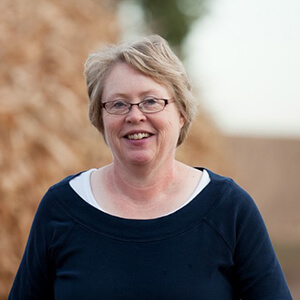
In a candid reflection, Wanda Patsche highlights the pressing challenges and opportunities facing today’s farmers, covering critical topics such as post-harvest routines, the impact of elections, the shortcomings of the proposed Farm Bill, and the importance of maintaining certifications in an evolving agricultural landscape.
Farm Life Post-Harvest: A Balance of Routine and Planning
As the harvest season concludes, farmers shift their focus to essential but often overlooked tasks, including cleaning and servicing equipment, storing tools, and preparing for the upcoming planting cycle. While these activities may seem mundane, they form the backbone of a functioning farm. Wanda also shares her experience meeting with a crop insurance adjuster and preparing for tax appointments, highlighting the financial planning needed to navigate uncertain markets.
Adding to this, recent rains have been a welcome respite following a particularly dry summer. With 1.5 inches of slow, soaking rain replenishing parched soils, Wanda acknowledges the importance of weather in determining future productivity, underscoring the delicate balance farmers must maintain between preparation and the unpredictability of nature.
Election Consequences: A Farmer’s Perspective on Policy and Society
Elections, often divisive by nature, leave Wanda both reflective and concerned. She critiques what she sees as government inefficiency, wasteful spending, and the prevalence of corruption. On agriculture, she specifically addresses her unease with Robert F. Kennedy’s proposed policies, which emphasize smaller, organic-focused farms.
Wanda raises critical questions about defining “small and medium farms,” noting that size and needs vary drastically based on location and crop type. She also defends the use of pesticides on her farm, emphasizing that modern farming techniques, including genetically engineered (GE) crops, have reduced pesticide use and toxicity significantly. Wanda credits experts like Dr. Kevin Folta and the Genetic Literacy Project for helping her make informed decisions and stresses the importance of basing agricultural policies on science rather than ideology.
The Farm Bill: A Missed Opportunity for Agriculture
The recently proposed Farm Bill has left Wanda deeply disheartened, particularly due to its failure to address California’s Prop 12, a measure mandating housing standards for farmers across the nation. Wanda argues that allowing urban voters to dictate farming practices in rural states is problematic and ignores the expertise of those who work directly with animals.
Beyond Prop 12, Wanda criticizes the Farm Bill for largely ignoring traditional corn, soybean, and wheat farmers, instead focusing on specialty crops and small-scale farms. Historically, agricultural policy has been a bipartisan effort, but the lack of collaboration this time has led to what she views as a weak and incomplete proposal. The possibility of extending the current Farm Bill into 2025 further frustrates her, as she sees it as delaying much-needed reforms.
Certifications: Maintaining High Standards in Livestock Care
Wanda recently renewed her Pork Quality Assurance (PQA+) and Transport Quality Assurance (TQA+) certifications, vital programs sponsored by the National Pork Producers Council to ensure proper care and handling of livestock. These certifications emphasize responsible use of antibiotics, humane animal handling, and thorough record-keeping—practices that are not just regulatory requirements but essential to ethical farming.
While Wanda appreciates the value of these programs, she notes room for improvement in the training materials. Still, the certifications remain critical, as they are a requirement from her meat packer and reflect the industry’s commitment to maintaining consumer trust and food safety.
Key Takeaways
Wanda’s commentary captures the multifaceted challenges farmers face today. From managing post-harvest routines to navigating divisive elections, flawed policy proposals, and rigorous certification requirements, the modern farmer must balance tradition with innovation. Her reflections highlight the urgent need for policies that support all farmers—not just niche segments—while championing science-based solutions and collaboration to address pressing agricultural issues.





